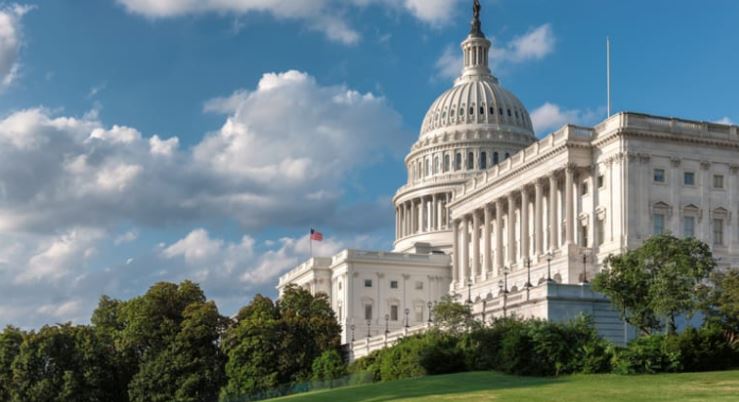Before recessing for the Thanksgiving holiday, the U.S. House of Representatives passed legislation reauthorizing the National Apprenticeship Act (NAA), which would invest billions of dollars in the work-based learning model, codify standards, and expand apprenticeship to new communities and industries.
The bill authorizes nearly $4 billion in new spending over the next five years on registered apprenticeships managed by the U.S. Department of Labor (DOL) and the states.
Registered apprenticeships have established standards by regulation (but not codified in statute) that meet national and state quality requirements.
Rep. Susan Davis, D-Calif., the bill’s sponsor, said her proposal aims to expand upon the existing registered apprenticeship programs, create new programs in sectors that traditionally don’t employ apprentices, integrate apprenticeships more into education pathways and make programs more accessible for employers.
The NAA has not been substantively updated since its passage more than 80 years ago, said Katie Spiker, director of government affairs at the National Skills Coalition, a workforce development advocacy organization in Washington, D.C.
She said the new legislation is an important first step “toward both modernizing apprenticeship and providing Congress the opportunity to put scaffolding around how the DOL spends its increasing appropriations for apprenticeship.”
This legislation is projected to create nearly one million new apprenticeship opportunities over the next five years in addition to the normal, expected growth of the programs.
The National Apprenticeship Act of 2020 proposes to authorize funding for:
- Expanding registered apprenticeships, pre-apprenticeships and youth apprenticeships.
- Supporting more apprenticeships in occupations that do not traditionally offer apprenticeship programs, such as health care, human resources and information technology.
- Supporting more participation in apprenticeship by women, minorities, veterans and people who had been incarcerated.
“The investment in pre-apprenticeship programs is particularly important for people of color and women, who have been historically underrepresented in certain industries and apprenticeships,” Spiker said. “Pre-apprenticeship programs create formal on-ramps for workers to employers who are looking to hire—a more equitable form of access than requiring workers to rely on their own professional and social networks.”
Additionally, the bill would define and codify standards for apprenticeship programs and the structure of the DOL’s Office of Apprenticeship and the National Advisory Committee on Apprenticeship, which provides the office with recommendations to improve the national apprenticeship system. It would also dedicate funding to state apprenticeship agencies and ensure that labor unions are included in apprenticeship activities. The last provision—requiring applicants for apprenticeship funding to partner with labor unions when possible—is one of many parts of the legislation that Republicans opposed.
Rep. Virginia Foxx, R-N.C., the ranking member on the House Education and Labor Committee, said, “This would block countless potential participants from accessing these funds,” and “unfortunately, Democrats are once again choosing to provide benefits to politically favored unions rather than addressing the underlying problems.”
The Associated General Contractors of America said in a statement that “using the power of the federal purse to discriminate against a U.S. DOL registered apprenticeship program for the sole reason that they are not partnered with a labor or joint labor-management organization is unfair.”
While expanding apprenticeships has bipartisan support, the main sticking point for Republicans opposing the legislation is the rejection of funding for President Donald Trump’s Industry-Recognized Apprenticeship Programs (IRAPs).
The IRAP system was established this year to exist alongside the DOL-regulated system. The model is meant to encourage industries to participate in work-based learning programs by turning over recognition and oversight of the programs to third parties, such as businesses, trade groups, nonprofits and unions.
Rep. French Hill, R-Ark., co-chair of the Congressional Skilled American Workforce Caucus, said that “business owners and entrepreneurs know best what skills their employees need to excel in the workplace, and Congress should encourage innovation in the apprenticeship space instead of doubling down on a flawed approach.”
In fiscal year 2019, he noted, only about one-third of the 252,000 people who entered apprenticeships graduated from the registered apprenticeship system.
“Clearly, there is room to improve the existing system, make space for employer-led innovation and get more people back to work,” he said. “Instead of trying to reform the system, we must reimagine the apprenticeship model with a focus on innovation and flexibility.”
Critics of the IRAPs contend that replacing government oversight with industry-run accreditation will lead to fewer worker protections. An apprenticeship program “shouldn’t receive federal funding if it doesn’t have standards,” Davis said.
The bill does not mention the IRAP model, and House Democrats say they have no intention of funding the new system because doing so would take money away from registered programs.
The legislation now moves to the U.S. Senate, where it is unlikely to see movement before the end of the lame-duck session. But Democrats said they will pursue the overhaul once President-elect Joe Biden takes office in January 2021.
For more insightful information on labor laws and HR, see our ManagedPAY blog.
